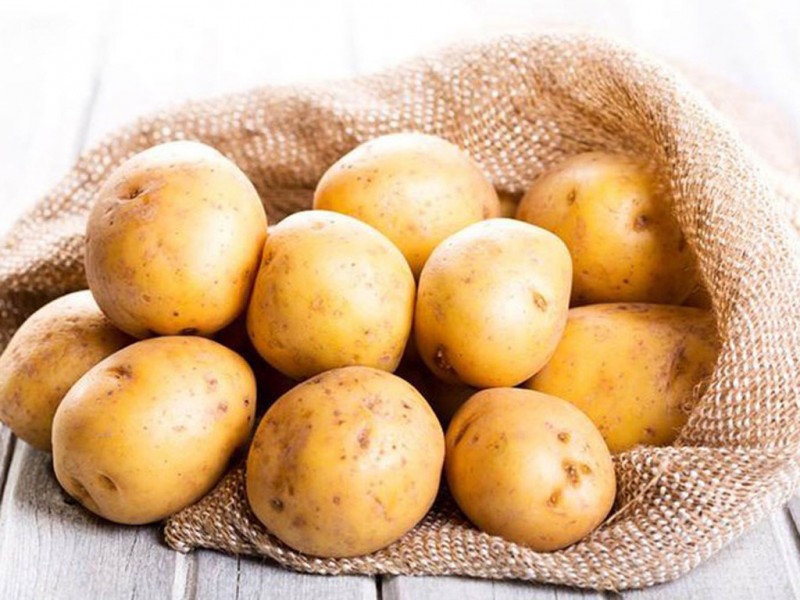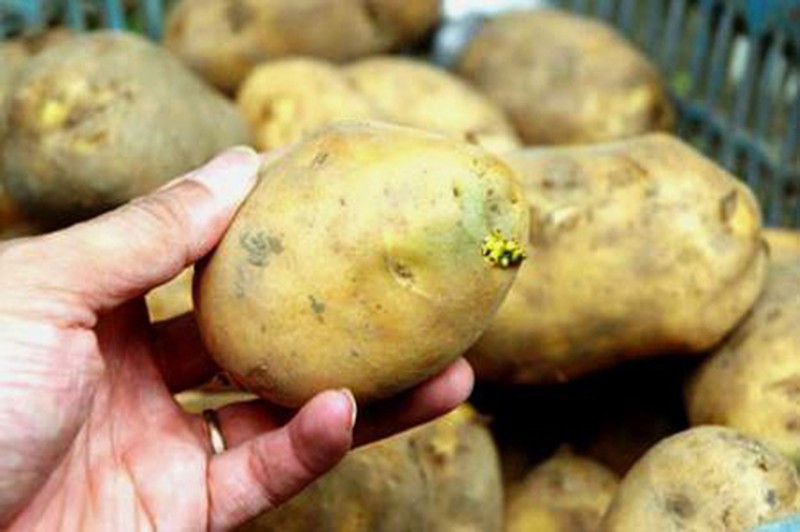Compared to other vegetables, potatoes are relatively easy to store. After harvesting, take the time to sort through them, removing any damaged or bruised potatoes, and then use the following storage methods to keep your potatoes fresh for longer.
1 How to Store Potatoes
Store healthy potatoes in a cool, dark place
Potatoes prefer darkness and dislike moisture. Exposure to sunlight or humid conditions can cause potatoes to sprout or rot. Therefore, store them in a sunless location, such as a basement or under the kitchen cabinet.
Keep potatoes in a well-ventilated area
Avoid storing potatoes in airtight containers. Instead, use a mesh bag, a basket, or a cardboard box with circular holes punched in the sides to allow for air circulation and regulate humidity, keeping the potatoes fresher for longer.

Maintain a cool temperature
The ideal temperature for storing potatoes is between 10-15 degrees Celsius. However, this does not mean storing them in the refrigerator, as the temperature is typically around 7 degrees Celsius, which can cause potatoes to become bruised and lose their fresh flavor.
Do not store potatoes with fruits
Fruits emit ethylene gas, which can cause potatoes to sprout prematurely and even become toxic. So, if you want to extend the shelf life of your potatoes, avoid storing them with fruits.
Regularly inspect potatoes for signs of deterioration
It is advisable to periodically check your potatoes. If you notice any signs of deterioration, remove the affected potatoes to prevent the issue from spreading to the other tubers.
2 Signs That a Potato Needs to Be Discarded
Green Skin: If you notice a potato with a soft, slightly wilted texture and a green skin, it is best to discard it or, if you must cook it, remove the green portion before consumption.
Sprouted Potatoes: Potatoes that have sprouted can produce toxins. Therefore, if you see any sprouts, it is advisable to discard the potato rather than risk potential health issues.
Decayed Potatoes: If the potato flesh becomes soft and mushy, and there is an unpleasant odor, discard it immediately.

Notes on Potato Storage
Avoid washing potatoes before storing them, as moisture can lead to decay. The drier the potatoes are, the longer they will last. If you want to remove dirt or debris from the surface, use a dry cloth or brush to gently clean them.
While it is not advisable to store potatoes in the refrigerator, if you have already done so, bring them to room temperature before cooking.
If you cut potatoes and cannot cook them immediately, soak them in cold water, and they will stay fresh for up to a day.
By following these storage tips, you can not only extend the shelf life of your potatoes but also maintain their nutritional value and delicious flavor.
The Ultimate Guide to Storing Garlic, Ginger, and Potatoes: Keep Them Fresh for Weeks
 Potatoes: Keep Them Fresh for Weeks’>
Potatoes: Keep Them Fresh for Weeks’>Garlic, ginger, and potatoes are agricultural products that, if not stored properly, can easily succumb to mold. Let’s take a look at some tips to keep these fresh and mold-free!
The Ultimate Guide to Telling Chinese and Dalat Potatoes Apart
If you’re a potato lover but are wary of accidentally buying Chinese potatoes, then fear not! We’ve got the ultimate guide to help you differentiate and choose the right spuds. With our expert tips, you’ll become a potato-picking pro and never have to worry about making a mistake again. Get ready to boost your confidence in the kitchen!




































